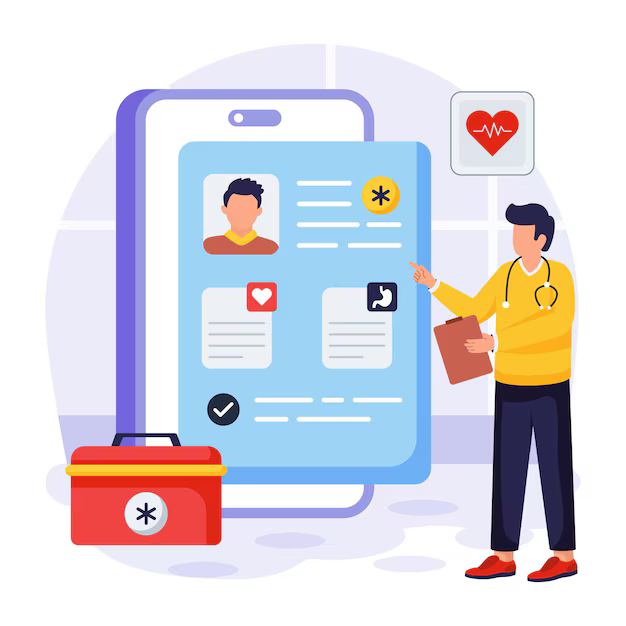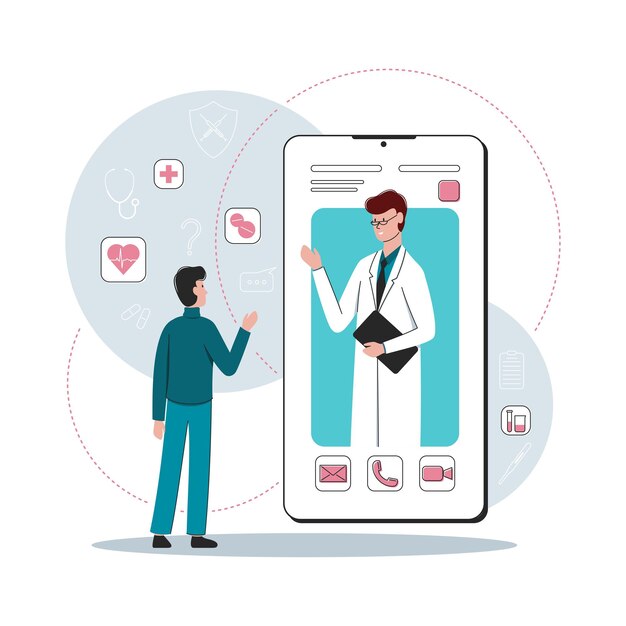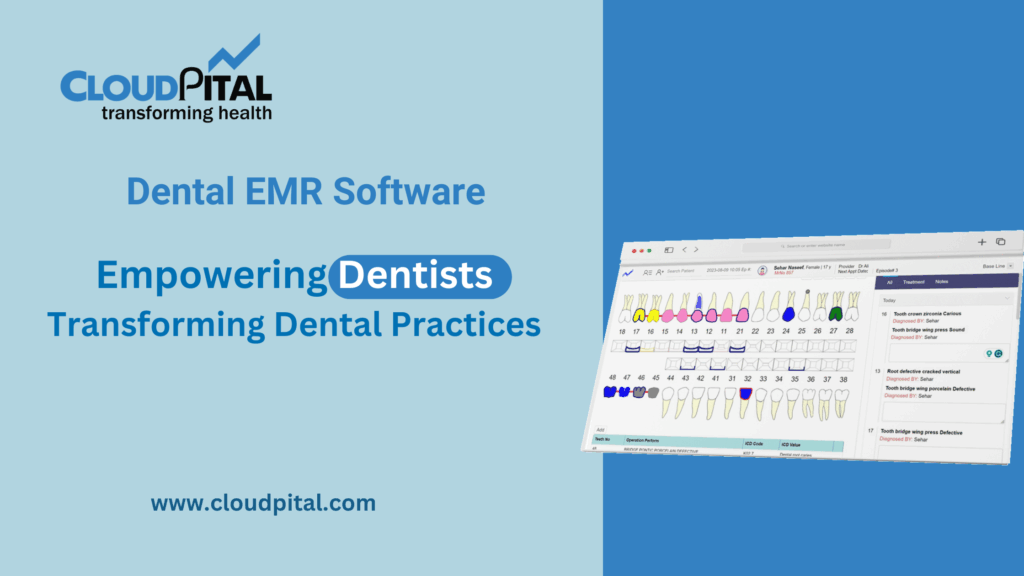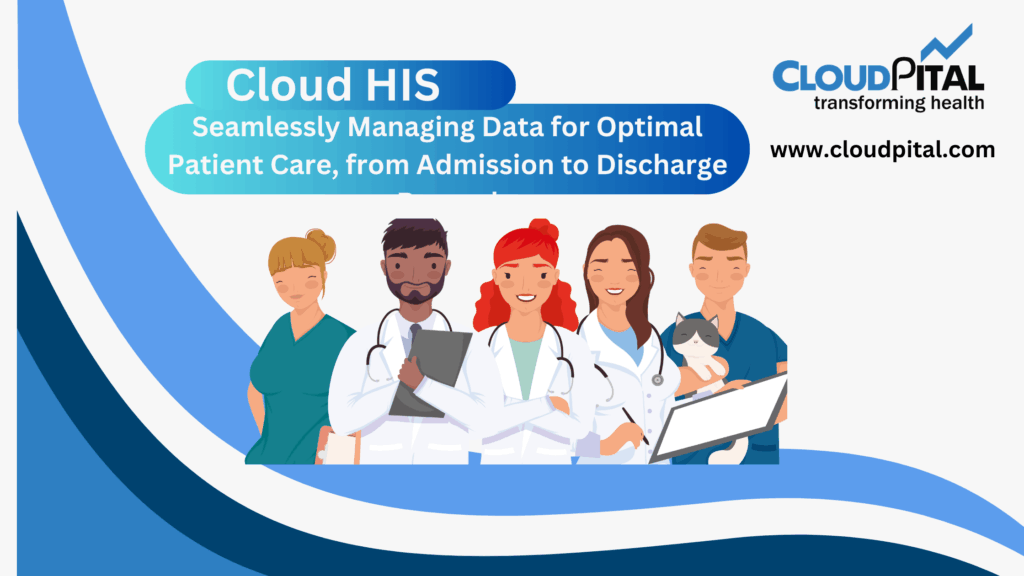Cloudpital # 1 is one of the top Mobile EHR that has revolutionized the way patient information is handled by medical practitioners. Though the conventional EHR systems offer impressive advantages, mobile EHR extends these features to greater accessibility, flexibility, and productivity. A mobile EHR system allows healthcare professionals to view and modify patient records anywhere, anytime, with the help of smartphones, tablets, and other devices. This article explores the major characteristics of a mobile EHR system and how they improve healthcare provision.
Click to Start Whatsapp Chatbot with Sales
Mobile: +966547315697
Email: sales@bilytica.com
Cloudpital # 1 Mobile EHR

Cloud-Based Accessibility
Cloud-based accessibility is one of the fundamental characteristics of a Mobile EHR system, enabling healthcare practitioners to retrieve and modify patients’ information from any location with an internet connection. In contrast to on-premise EHR systems where accessing a physical database is necessary, cloud-based mobile EHRs provide:
- Real-time synchronization of data across various devices.
- Remote access for telehealth and emergency services.
- Automatic updates without the need for manual software installations.
Intuitive Interface and Mobile Optimization
An effective mobile EHR system has a responsive and intuitive interface designed for touchscreen devices. Medical professionals need rapid navigation, convenient data entry, and minimal lag in accessing patient records. Important features of mobile optimization are:
- Clean and simple dashboard designs.
- Touchscreen-friendly input fields and drop-down menus.
- Customizable layouts for various medical specialties.
Secure Authentication and Access Control
Security is of utmost importance in healthcare IT, particularly when patient information is accessed through mobile devices. Mobile EHR systems incorporate multi-factor authentication (MFA) and role-based access control (RBAC) to protect patient data. Security features include:
- Fingerprint and facial recognition authentication.
- Encrypted data storage and transmission.
- User access logs and monitoring for suspicious activity.
Interoperability and Integration with Other Systems
An ambulatory EHR system should harmoniously integrate with other healthcare technology, including:
- Hospital Information Systems (HIS) for streamlined operations.
- Medical imaging systems (PACS/RIS) for radiology and diagnostics.
- Pharmacy systems to enable electronic prescriptions.
- Wearable health devices for real-time monitoring of patients.
Interoperability enables effective sharing of data between healthcare professionals, eliminating redundancy, and enhancing coordinated care.
Telehealth and Remote Patient Monitoring (RPM) Support
With the advent of telehealth, Mobile EHR systems now have in-built support for virtual consultations and remote patient monitoring. Capabilities include:
- Secure video conferencing for telemedicine.
- Integration with RPM devices such as blood pressure monitors and glucose meters.
- AI-based alerts for unusual patient readings.
These features enable physicians to remotely monitor and manage chronic conditions, minimizing unnecessary hospital visits.

Voice Recognition and Speech-to-Text Documentation
Physicians and nurses may have little time to enter patient data manually. Voice recognition and speech-to-text technology allow hands-free documentation, enhancing workflow efficiency. Advantages are:
- A quicker note-taking experience and less paperwork.
- Computerized transcription of physician-patient conversations.
- Support for integration with AI for voice commands.
Offline Mode with Auto-Sync Abilities
An important characteristic of EMR systems is offline capability. Medical professionals who work in far-flung places or where the internet connection is weak can also access and edit patient records. When the internet connection is back, the system automatically synchronizes data with cloud servers.
E-Prescription and Medication Management
Mobile EHR systems allow electronic prescriptions (eRx), which simplify prescription management and patient safety. Key features are:
- Instant prescription transmission to pharmacies.
- Tracking of medication history and drug interaction alerts.
- Dosage suggestions and refill tracking.
Clinically Customizable Templates
Each medical specialty has its own set of documentation needs. Mobile EHR systems offer clinically customizable templates that enable healthcare professionals to modify forms, notes, and workflows based on their individual needs. Customization features include:
- Pre-populated forms for frequent diagnoses.
- Specialty-specific fields (e.g., cardiology, dermatology, pediatrics).
- Intelligent templates that adjust based on patient history.
AI-Based Clinical Decision Support (CDS)
Artificial Intelligence is transforming EHRs with clinical decision support capabilities. AI-based insights assist healthcare professionals:
- To find possible diagnoses based on patients’ symptoms and history.
- To suggest evidence-based treatment recommendations.
- To identify drug interactions and contraindications.
All these capabilities eliminate medical errors and improve patient safety.
Appointment Scheduling and Automated Reminders
A mobile EHR system incorporates appointment scheduling within it, where healthcare professionals and patients can easily schedule consultations. Moreover, reminders reduce no-shows by:
- Sending SMS/email reminders to patients.
- Facilitating self-service rescheduling.
- Syncing with provider schedules and hospital calendars.
Billing, Insurance, and Revenue Cycle Management
Mobile EHR systems also incorporate billing and insurance integration in order to streamline administrative work. The major features are:
- Automated insurance verification and claims filing.
- ICD-10 and CPT code integration for billing accuracy.
- Financial reporting and revenue cycle analytics.
These functionalities enable hospitals and clinics to minimize claim denials and maximize financial efficiency.
Patient Portal for Self-Service Access
Facilitating self-service access to medical records by patients increases patient engagement and treatment plan adherence. Telemedicine systems equip patient portals with:
- Secure access to health records and test results.
- Direct messaging with healthcare providers.
- Medication reminders and lifestyle recommendations.
Click to Start Whatsapp Chatbot with Sales
Mobile: +966547315697
Email: sales@bilytica.com
What are the key features of a Mobile EHR system? similar software solutions prices were updated on 2026-01-28T00:17:57+00:00 in Saudi Arabia in Mecca, Medina, Riyadh, Khamis Mushait, Yanbu, Jeddah, Dammam, Unaizah, Uqair, Ha’il, Ta if, Al Bahah, Dhahran, King Abdullah Economic City, Najran, Diriyah, Qatif, Khafji, Jubail, Abqaiq, List of Cities and Towns in Saudi Arabia, Ras Tanura, Turubah, Jazan Economic City, Knowledge Economic City, Medina, Khobar, Abha, Tabuk, Saudi Arabia, similar software solutions prices were updated on 2026-01-28T00:17:57+00:00 We also provide in Saudi Arabia services solutions company in Hafar Al-Batin, Udhailiyah, Al-Awamiyah, Hofuf, Hautat Sudair, Buraidah, Tayma, Duba, ‘uyayna, Saihat, Al-Kharj, Al-ula, Jizan, Rumailah, Ar Rass, Arar, Shaybah, Al Majma’ah, Rabigh, Dhurma, Haradh, List of Saudi Cities by Gdp Per Capita, Badr, Sudair Industrial City, Baljurashi, Shaqraa, Al-Khutt, Habala, Ad Dawadimi, Dawadmi, Layla, similar software solutions prices were updated on 2026-01-28T00:17:57+00:00 Price is SAR 100 and this was updated on updated on 2026-01-28T00:17:57+00:00 similar What are the key features of a Mobile EHR system? software solutions prices were updated on 2026-01-28T00:17:57+00:00 in Saudi Arabia in Haql, Afif, Al-Abwa, Farasan, Al-Jaroudiya, Thadig, Al-Thuqbah, Al Wajh, Almardmah, Al-Zilfi, Muzahmiyya, Prince Abdul Aziz Bin Mousaed Economic City, Tharmada’a, Skaka, Um Al-Sahek, Sharurah, Tanomah, Bisha, Dahaban, Al Qunfudhah, Qurayyat, Saudi Arabia, Ha’ir, as Sulayyil, Al Lith, Turaif, Al-Gway’iyyah, Samtah, Wadi Ad-Dawasir, Az Zaimah, Safwa City, Jalajil, Harmah, Mastoorah, Hotat Bani Tamim, Jabal Umm Al Ru’us, Rafha, Qaisumah, Al-Ghat, Hajrah, Al-Hareeq. Excerpt: Jeddah (also spelled Jiddah, Jidda, or Jedda; Arabic: Jidda) is a Saudi Arabian city located on the coast of the Red Sea and is the major urban center of western Saudi Arabia similar software solutions prices were updated on 2026-01-28T00:17:57+00:00 Price is SAR 100 and this was updated on updated on 2026-01-28T00:17:57+00:00




